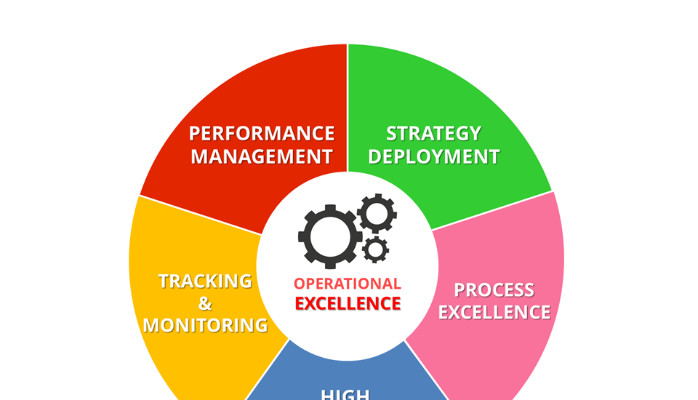
What Is Operational Excellence (OE)?
- What Is Operational Excellence (OE)?
- Continuous improvement; Cost & profitability; Developing countries; Efficiency;
- Governance; Government; Investors; Labor relations; Lawsuits; Leadership; Legal;
- License to operate; Management; Performance; Process; Public trust; Regulation; Reliability; Safety management systems (SMS); Shareholder; Social responsibility;
- Voluntary Protection Program (VPP); Workers compensation; World class performance; Zero incidents all key words to be known.
- “Excellence” is defined as a talent or quality which is unusually good and so surpasses
- Ordinary standards. It is also used as a descriptive for a standard of performance.
- Operational Excellence (OE) is the systematic management of health, environmental and safety in an integrated manner applied across all facets of the business to achieve superior outcomes across all the operations of the organization.
- Some organizations have described it as the ability of the organization to achieve and sustain leading performance in reliability and efficiency, while adhering to the highest standards for safety, health, and environmental stewardship in a cost-effective and profitable manner. Regardless of the many different ways it has been described, we can tell you that OE is a journey, the sort of journey that defines an organization and the capability it nurtures in pursuit of world class performance and competitive advantage as opposed to just delivering them to a specific destination.
- Organizations choose to apply OE through a comprehensive, structured, and well organized approach to building organizational capability as well as to leverage benefits resulting from doing things the right way.
- Most organizations employ OE systematically using a continuous improvement approach.
- At the heart of OE is leadership and the on-going efforts of establishing and maintaining standards in a consistent and reliable fashion. This focus invariably leads to greater enhanced operating performance and efficiencies necessary to assure sustainability.
- And of course, getting this part wrong can have quite the opposite effect as well; failing to manage effectively to the point where losses occur should suggest the possibility for certain losses of efficiency and introduction of additional hurdles that only serve to diminish the potential for maximizing profitability.
- Taking the journey toward achieving Operational Excellence typically begins with making an initial step-change improvement, followed by a commitment to a continuum of incremental enhancements.
- Installing and nurturing a culture of Operational Excellence results in significant and sustained competitive advantage though safe, reliable and highly effective operations.
- Operational excellence is no longer just something to strive for—it has become a “must Have.” Dr D.P. Nolan
- Companies striving for outstanding safety and health records choose to apply OE not only for ensuring strict regulatory compliance, but also for the purpose of developing their own best practices as a means of enhancing and proactively managing their own performance in a methodical and disciplined fashion. Ultimately, achieving operational excellence is about empowering all workers—management, supervisors, employees and even contractors—to make the decisions and take the actions necessary to make safety and health practices truly work.
- OE involves a strong focus on planning, decision-making, and taking the precautions necessary for preventing incidents that can result in injury or property loss. It simply makes more sense to figure out what can go wrong and take the steps to avoid it before it happens and avoid losses before they occur.
- This sounds simple enough in concept. But, with the urgent deadlines in today’s daily activities, where there is the continual push to make things cheaper and faster, and to do more with less, it is no surprise that the many competing priorities an organization must contend with must be properly reconciled in order for things to be completed the right way—safely in a manner where there are no incidents and no one gets hurt.
- A properly executed operational excellence management system will touch every level of the organization from the boardroom to the shop floor. OE requires management to engage the entire line management chain of command; mid-level management, front line supervisors, foremen and team leaders alike. Collectively, the line management chain of command share responsibility and are individually accountable for being good stewards of shareholder capital and properly managing the workforce, implementing and maintaining the system, and ensuring operational discipline across the spectrum of management system functional controls—comprised of the various processes, programs, procedures, rules, and safe work practices.
- Applied Operational Excellence for the Oil, Gas, and Process Industries;
- This book will examine key attributes that are part of the operational excellence journey and will also provide insights for developing a genuinely effective and sustainable company culture that truly values safety, health, and the environment within organizations in the oil, gas, and related industries.